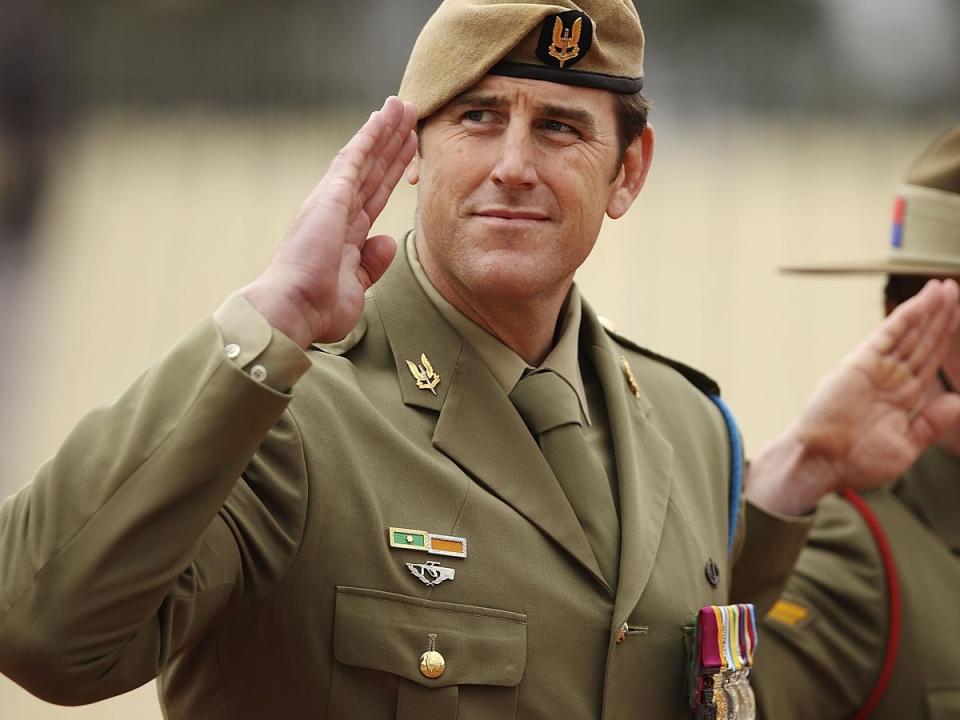Australia’s most decorated living soldier committed war crimes, judge rules in defamation case

Australia's most decorated living solider committed war crimes – including murders – while serving with the country’s SAS in Afghanistan, a judge has ruled.
Handing down a judgement in a historic defamation case brought by Victoria Cross recipient Ben Roberts-Smith against three newspapers that had run articles alleging he killed unnamed prisoners, Federal Court Judge Anthony Besanko said four of six murder allegations were substantially true. It marks a stunning end to a case that has lifted the veil of secrecy over the elite SAS.
‘‘In light of my conclusions, each [defamation] proceeding must be dismissed,’’ Judge Besanko said.
The murder allegations that Judge Besanko said had been proven substantially true included:
The killing of a handcuffed farmer who Mr Roberts-Smith had kicked off a cliff before ordering shot dead
A captured fighter who was shot at least 10 times in the back, before his prosthetic leg was taken as a trophy and later used by troops as a drinking vessel
Two murders which were ordered or agreed to by Mr Roberts-Smith to initiate or ‘‘blood’’ rookie soldiers.
The civil trial is the first time a court has assessed accusations of war crimes by Australian forces. Australian civil courts require a lower threshold to prove accusations than criminal courts do. Mr Roberts-Smith, 44, has denied all the allegations against him and has not been charged with any offences. He was not present in court for the ruling.
Mr Roberts-Smith was seen as a national hero for his actions during six tours of Afghanistan from 2006 to 2012. He later carved out a post-military career as an in-demand public speaker and media executive. His portrait hangs in the Australian War Memorial.
He was awarded the Victoria Cross for attacking a machine gun nest during a battle at Tizak, Kandahar, in 2010. Mr Roberts-Smith was credited with killing two machine-gunners and an insurgent about to launch a rocket grenade. No war crime allegations stem from that battle.

Articles by The Sydney Morning Herald, The Age and The Canberra Times since 2018 alleged that some of his conduct went beyond the bounds of acceptable military engagement. Mr Roberts-Smith sued the papers for portraying him as someone who ‘‘broke the moral and legal rules of military engagement’’. He called the reports false and based on claims of failed soldiers who were jealous of his accolades, and sought unspecified damages.
The newspapers sought to defend their reports by proving the claims were true, and presented other soldiers and former soldiers as witnesses in court who corroborated them.
While that legal strategy was largely successful, Judge Besanko found the newspapers had not proven two other murder allegations; nor allegations Mr Roberts-Smith had assaulted a woman with whom he was having an affair. However, the judge found the unproven allegations would not have further damaged the veteran’s reputation.
The trial is estimated to have cost more than 25m Australian dollars in legal fees (£13m). There were 110 days of evidence, 41 witnesses and more than 6,000 pages of transcript.
Mr Roberts-Smith’s lawyer, Arthur Moses, told reporters: ‘‘We will consider the lengthy judgment that his honour has delivered and look at issues relating to an appeal.’’
‘‘It is a vindication for the many people in our newsrooms and our organisation who supported this really important public interest journalism,’’ said James Chessell, managing editor of publishing at the newspapers’ owner, Nine Entertainment Co Ltd.
‘‘It is a vindication for the brave soldiers of the SAS who served their country with distinction and then had the courage to speak the truth about what happened,’’ Mr Chessell said outside the court.
Australian Special Air Service Association chair Martin Hamilton-Smith described the ruling in the defamation as a ‘‘very disappointing day’’ for the elite regiment.
A 2020 report by the inspector-general of the Australian Defence Force into the conduct of Australian special forces troops in Afghanistan found “credible” information that Australian troops may have unlawfully killed 39 Afghan civilians and prisoners.
Mr Hamilton-Smith said that if veterans were to be prosecuted for war crimes, they should be charged without delay.
“The only way you’ll get to the real truth of this is to get it into a criminal court where both sides of the story can be told and the facts established beyond reasonable doubt,’’ he added.
Reuters and Associated Press contributed to this report

 Yahoo Sport
Yahoo Sport 





































